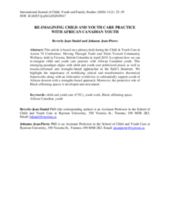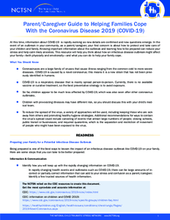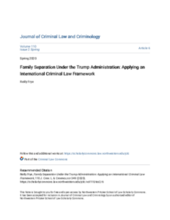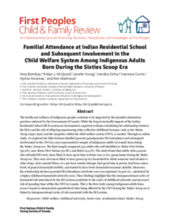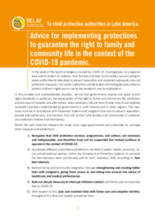This page contains documents and other resources related to children's care in the Americas. Browse resources by region, country, or category.
Displaying 1121 - 1130 of 3191
This article explores how we can re-imagine child and youth care practice with African Canadian youth.
The U.S. Center for the Study of Social Policy (CSSP) is working to create resources designed to give a voice to children, youth, and families at most risk during the COVID-19 crisis. This clearinghouse is a collection of all of their resources to date.
This webpage from the Center on the Developing Child at Harvard University features a list of links to national and international resources that can help with a variety of concerns related to the COVID-19 pandemic.
This webpage from the Center on the Developing Child at Harvard University lists some simple, free activities to help support a child’s healthy development during the COVID-19 crisis.
These additional considerations are intended to provide guidance for a range of child care programs that remain open, and should be used in conjunction with CDC’s guidance for administrators of child care programs and K-12 schools.
This resource from Save the Children US features tools and tips for parents, caregivers, teachers and all those who care about children in crisis.
This resource from the U.S. National Child Traumatic Stress Network will help you think about how an infectious disease outbreak might affect your family—both physically and emotionally—and what you can do to help your family cope.
This Comment will propose a theoretical international criminal law response to the family separation that occurred in summer 2018.
Through an online study, the authors of this paper explored the links between familial (parents/grandparents) Indian Residential School (IRS) attendance and subsequent involvement in the child welfare system (CWS) in a non-representative sample of Indigenous adults in Canada born during the Sixties Scoop era.
This call to public authorities presents recommendations from RELAF for preventing family separation and implementing adequate care and protection measures to protect children’s rights put at risk by the pandemic and its implications.


